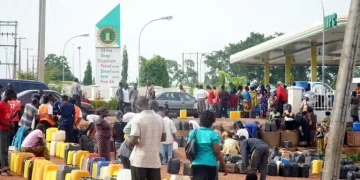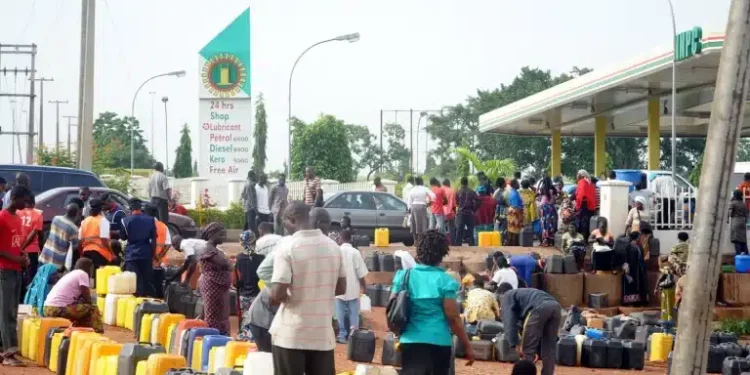Adedapo Segun, Executive Vice President (Downstream) of the Nigerian National Petroleum Company Limited (NNPCL), has advised Nigerians to prepare for continued fuel shortages. This warning comes after a recent increase in fuel prices that has significantly affected people across the country.
Drivetvnews reports that NNPC raised the pump price of petrol to ₦855 per litre at its filling stations on Tuesday.
In an appearance on Thursday’s Arise Television Morning Show, Segun stressed the need for a competitive market to stabilize fuel prices and ensure a consistent supply. He criticized the current pricing, stating that it does not reflect market realities and that NNPCL’s role as the sole importer of Premium Motor Spirit (PMS) is unusual. He advocated for a market-driven approach where competitive forces, rather than a single entity, set prices.
Segun clarified that NNPCL’s exclusive position as the PMS importer was a response to changing market conditions rather than a strategic choice. He emphasized that the company did not seek to monopolize the market but had to step in when other players reduced their involvement.
“NNPCL is not a regulator. We did not choose to be the sole importer. We do not control who enters the market. We took on this role due to reduced participation from others. It is not about seeking monopoly,” Segun explained, stressing that the company’s involvement was necessary due to the lack of other market participants.
He also noted that achieving stable fuel prices requires optimal market conditions, particularly regarding foreign exchange availability. Segun indicated that addressing the pricing issue would likely need broader economic reforms to enhance liquidity and competition.
The current fuel scarcity, which is evident nationwide, is attributed to NNPCL’s difficulties in managing fuel imports and paying debts to suppliers. Experts have recommended that NNPCL pursue more strategic borrowing to resolve supply issues and prevent further disruptions.
The recent rise in fuel prices has added to the financial burden on Nigerian citizens, who are already dealing with high living costs. This situation raises concerns about potential increases in transportation expenses and the prices of goods and services.















